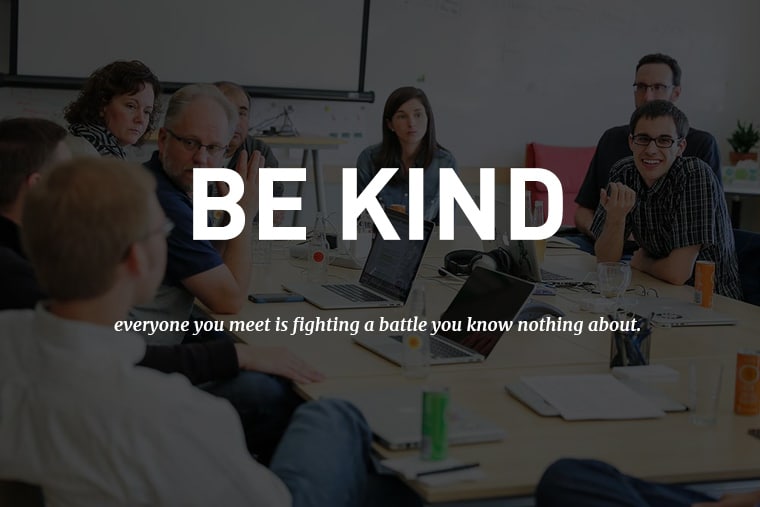Hello, friends. If you’ve come to Atomic Spin for a bit of genius advice about Ember.js or for our latest thoughts on product design, agile, or software teams, this post will be a bit different from what you’re expecting. However, I promise it’s equally useful.
I want to share something important that has recently taken on new meaning for me and begun to inform my work in profound ways. Settle in, it’s about to get real in here.
Eight months ago, I lost a member of my family. Her death was unexpected and not particularly peaceful, and I witnessed it. It happened on the coldest day of one of the coldest winters on record for Michigan. It was a sad and traumatic experience.
When I returned to work after it happened, all I wanted to do was move on and forget. I knew my customer and my team needed me, and I wanted to be the high performer that they were used to working with.
I struggled like crazy. More than I ever expected, and for months longer. My energy was low, my communication was less than clear, I felt like my thoughts were enveloped in fog, and I had difficulty assessing situations and identifying appropriate courses of action. I cried in the bathroom pretty frequently. At my best, I was distant. At my worst, I was fragile and downright grouchy. (Charitable teammates may protest this account. I assure you it’s fact.)
I wasn’t always able to be transparent about what was troubling me, sometimes because I didn’t know myself. It’s taken time, love, and assistance in various forms for me to heal. I wouldn’t say I’m fully there yet, but I’m so much better. On that day, I became a new version of myself, and it took time and a lot of effort to understand this version.
Here’s the point I hope to make by oversharing on my company’s blog: You’ve likely heard the Ian MacLaren quote (widely misattributed to Plato) that goes, “Be kind, for everyone you meet is fighting a hard battle.” Well, my recent experience speaks to how true these words are, as well as their implications for how we interact with those we encounter in the workplace.
When a colleague or a customer seems disengaged, uncomprehending, grouchy, antagonistic, or inflexible, the easiest response is to attribute malicious, obstinate, or selfish motives and respond in kind. Another easy assumption to make is that they have something against you personally. However, your colleague or customer’s behavior could be completely unrelated to you or your work. A better response is to take a deep breath, acknowledge that completely unrelated factors could be at play, and move forward with kindness and compassion.
A compassionate response doesn’t mean giving up in an argument, but it can influence how you communicate your position. It doesn’t mean taking abuse you don’t deserve, but it may mean letting go of a harsh comment or poorly worded e-mail instead of firing off a response. Sometimes, it means addressing perceived tension head-on by initiating an honest conversation. It may mean going out of your way to take care of somebody who’s clearly struggling.
I am thankful for the many moments this year when I was the recipient of extra grace and kindness. Colleagues who acted as my sounding board when I was too fried to make heads or tails of a decision. Clients who were patient, understanding, and flexible. The anonymous (but I have my suspicions) wonderful person who left Yogi Stress Relief Tea on my desk one particularly difficult day. Others who asked and listened, acknowledged my grief, and expressed concern in their own ways. The thing I went through shaped me, but so did the compassion that I received. It’s made my work better, and it’s changed how I approach difficult interactions in the workplace.
Have courage and be kind, friends.

